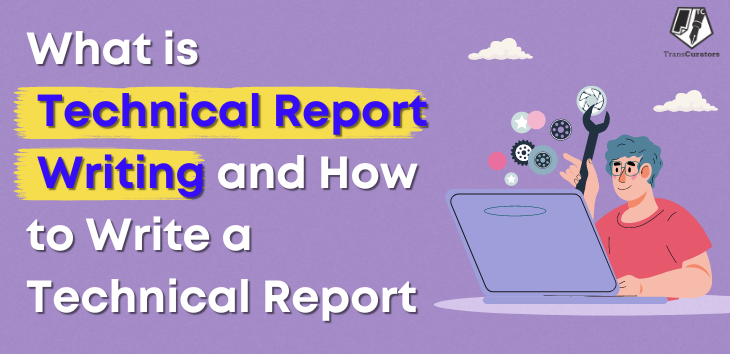
In the fast-paced world of content creation, ghostwriting is one of the most exciting and significant careers. But what is ghostwriting? Consider having excellent ideas, fascinating stories, or significant expertise but struggling to put them into words. Enter the ghostwriter: a brilliant wordsmith who creates captivating content for others while remaining in the shadows.
Whether it’s a best-selling novel, a highly influential blog post, or a thought-provoking speech, ghostwriters turn concepts into polished prose, providing a voice to individuals who lack the time, writing abilities, or confidence to do so themselves. In this blog, we will uncover the mystery of what ghostwriting is. We’ll look at the fascinating world of ghostwriting, its significance, how to become a successful ghostwriter and know why authors or individuals need ghostwriters. Join us as we explore the secrets behind some of your favourite reads!
What is Ghostwriting?
Ghostwriting is a profession in which someone writes a book, article, or other content for someone else and credits them as the author. In simple terms, a ghostwriter is an undercover writer who helps others get their thoughts and stories written down. The individual who employs the ghostwriter gets to put their name on the work and claim it as their own. You might wonder why someone would want to hire a ghostwriter instead of producing their work. Well, there are a few reasons. Sometimes, individuals have wonderful ideas but need assistance putting them into words. That’s where a ghostwriter can help. They’re skilled at taking someone else’s ideas and turning them into polished writing.
Ghostwriting is not just limited to books. It is common in various contexts, including speeches, blogs, and social media posts. Anybody who wants to sound intelligent or convey a message but lacks confidence in their writing skills can seek the help of a ghostwriter. So, is ghostwriting ethical? It’s a tricky question. One positive aspect of hiring a ghostwriter is that it allows the client to discuss their ideas publicly. However, others say it is dishonest not to acknowledge the person who penned the words. Know more what is content writing?
Who is a Ghostwriter?
So, who becomes a ghostwriter? Well, people who often love writing and are good at it. They may possess a gift for mimicking the voice or style of others. While some ghostwriters are more adaptable and can write about everything, others focus on specific subjects, such as romance or business. However, ghostwriting might be challenging at times. You must have the flexibility to adjust to various writing styles and personas. You must also accept the fact that you will not get credited for your work. Seeing someone else’s name on something you worked so hard to create can be difficult. Despite hardships, many ghostwriters find their work enjoyable. They get to help individuals share their experiences and ideas with the public, even if they do it behind the scenes. Who knows, maybe one day they’ll publish their own book and receive the recognition they deserve.
How to Become a Ghostwriter?
For people with a knack for capturing the voices of others and an intense love of writing, becoming a ghostwriter can be an exciting and fulfilling professional option. Working behind the scenes on various projects, such as speeches, novels, and blog posts, is possible with ghostwriting. Here are some initial steps to keep in mind if you want to pursue a career as a ghostwriter:
1. Hone Your Writing Skills
The first step towards being a professional ghostwriter is to develop your writing skills. Regular writing practice is essential, allowing you to experiment with various styles and genres. To get your audience’s attention, prioritise clarity, coherence, and exciting narrative.
2. Understand the Role of a Ghostwriter
Ghostwriting not only requires writing skills but also an understanding and adaptability to the client’s voice and vision. A ghostwriter must set aside their ego and preferences to effectively portray the client’s thoughts and views.
3. Build Your Portfolio
You’ll need to demonstrate your writing ability and versatility to attract clients. Write samples of your work in various genres and styles to start building a portfolio. You can start your blog or website to display your writing or contribute pieces to online journals and publications.
4. Network and Make Connections
In the industry of ghostwriting, networking is the key. Make contact with writers, publishers, editors, and other experts in the field of writing. Engage in writing conferences, workshops, and social gatherings to connect with potential collaborators and clients. Making contacts and establishing a solid network can lead to great opportunities in the ghostwriting field.
5. Market Yourself
Once you’ve built a portfolio and network, it’s time to advertise yourself as a ghostwriter. Create a professional website or online profile highlighting your skills, expertise, and services. Use social media to showcase writing examples, connect with prospective clients, and engage with industry leaders.
6. Specialise in a Niche
To distinguish yourself as a ghostwriter, consider specialising in a niche or genre. Focusing on a specific niche, whether it is business, self-help, memoirs, or fiction, enables you to gain expertise and credibility. Clients frequently prefer ghostwriters with in-depth knowledge of their field or subject.
7. Pitch Your Services
Create personalised pitches that showcase your expertise, talents, and how you can help them accomplish their writing objectives. Be patient and follow up on leads to increase your chances of landing gigs.
8. Establish Clear Agreements
Before beginning any project, establish specific agreements with your clients on payment, timelines, scope of work, and confidentiality. Draft a formal contract defining the project’s terms and conditions to protect both parties’ interests. Make sure both parties are clear on expectations to dodge any misunderstandings down the line.
9. Develop Strong Communication Skills
Effective ghostwriting necessitates effective communication. You will need to attentively listen to your client’s wants and preferences, ask questions for clarifications, and provide regular updates on your progress. Stay in regular contact throughout the writing process for feedback and make revisions to ensure the client is satisfied with the outcome. Clear and transparent communication builds trust and ensures that the final product fulfils the client’s expectations.
10. Manage Your Time Effectively
Ghostwriting often involves handling multiple projects and deadlines. Develop time management skills so that you can prioritise work, set realistic objectives, and put aside enough time for research, writing, and revising. Calendars, to-do lists, and project management tools can help you keep organised and focused.
11. Stay Updated on Industry Trends
Since the writing profession is ever-evolving, it’s crucial to remain updated on industry trends and best practices. Follow writing blogs, sign up for industry emails, and engage in writing forums to remain up to date on the newest advances in ghostwriting and publishing.
Why Do Authors Use Ghostwriters?
Time Constraints:
One of the main reasons why authors use ghostwriters is their need for additional time. Many authors balance writing with busy professions, family responsibilities, and other commitments. Writing a book or a lengthy article takes a significant amount of time and work. By taking on the hard work, ghostwriters free up authors to concentrate on their primary responsibilities. By outsourcing the writing process, authors can preserve productivity in other areas while still accomplishing their aim of publishing content.
Lack of Writing Skills:
Only a few people with stories or knowledge to offer have good writing abilities. This is especially true for professionals in non-literary fields like commerce, science, and entertainment. These individuals might possess profound insights and valuable experiences but require assistance effectively expressing them on paper. Ghostwriters bridge this gap by transforming ideas into clear, engaging, and well-structured narratives. They guarantee that the author’s voice and message are conveyed effectively, even if the author is not a professional writer.
Efficiency in Publishing:
The publishing industry frequently demands short turnaround times, particularly in sectors where fresh content is essential. Authors who need to release a book or article on short notice need assistance meeting deadlines independently. Ghostwriters provide a solution by working efficiently and consistently to create high-quality content within the timeframe allotted. Their expertise lets them speed up the writing process, keeping the project on schedule and meeting the publisher’s expectations.
Confidentiality and Discretion:
Most authors want to keep their use of a ghostwriter confidential. This is especially true for high-profile individuals who wish to maintain the perception that they are the authors of their work. Ghostwriters understand the value of confidentiality and working discreetly, giving the author full credit while remaining behind the scenes. This allows the author to keep ownership of the work without disclosing the collaborative effort.
Complex Projects:
Some writing projects are fundamentally complicated, requiring specialised skills. For example, an autobiography may need a thorough understanding of narrative structure and character development, which can be daunting for someone without a background in creative writing. Ghostwriters who specialise in specific genres or forms of writing can handle the complexity, creating an engaging and cohesive novel that aligns with the author’s vision.
Consistency in Voice and Style:
Maintaining a consistent voice and style for a lengthy project can be time-consuming, especially for authors not used to writing regularly. Ghostwriters specialise in capturing and preserving the author’s unique voice, making sure the content is authentic and integrated from beginning to end. Consistency is essential for engaging readers and building a strong connection with the audience.
Enhancing Marketability:
Ghostwriters are also capable of making a book or article more marketable. They understand what makes information engaging to readers and can use it in the content they create. Ghostwriters know how to make content more engaging and commercial by crafting a compelling introduction, developing sympathetic characters, or presenting complex information efficiently. This expertise increases the chances of the work being well-received by the target audience.
Collaborative Expertise:
Dealing with a ghostwriter can often be a very collaborative process. While ghostwriters provide their writing talents and expertise, authors add their ideas, experiences, and knowledge. This collaboration can result in a more comprehensive and polished final product. The author provides the raw material, and the ghostwriter refines and enhances it, making a work more significant than the sum of its parts.
Personal Projects and Legacy:
Some authors employ ghostwriters for personal projects like memoirs or legacy books for family and friends. These projects hold high emotional significance, and the author might feel overwhelmed by the prospect of writing them alone. Ghostwriters give the support and structure required to bring these personal stories to life, preserving them for future generations.
Expanding Reach:
Finally, using a ghostwriter enables authors to expand their audience. By creating more content in less time, authors can reach a larger audience and explore novel opportunities for publication and promotion. Ghostwriters help authors maintain a steady stream of high-quality writing, strengthening their brand and presence in the literary world.
Authors hire ghostwriters for various reasons, including time limitations, a lack of writing skills, efficiency, confidentiality, and the complexity of projects. Ghostwriters help authors maintain a consistent voice, enhance marketability, and expand their reach. They give valuable support, allowing authors to concentrate on their skills while achieving their publishing objectives. Collaboration enables authors and ghostwriters to generate captivating, excellent content that resonates with readers and survives the test of time.
Conclusion
Ghostwriting is a significant and complex career that allows individuals to communicate their thoughts and tales without learning how to write themselves. Ghostwriters play an essential role in various genres, including books, essays, speeches, and social media posts, allowing clients to offer flawless, cohesive content. While some debate about the ethics of ghostwriting, the advantages—such as saving time, increasing marketability, and preserving the author’s voice—are substantial. Prospective ghostwriters should concentrate on improving their writing skills, developing a diverse portfolio, and effectively marketing their services. Ultimately, ghostwriters help bridge the gap between brilliant ideas and excellent writing, resulting in many captivating stories that might otherwise go untold. Are you looking to bring your ideas to life with expertly crafted content? Let TransCurators help you convey your message with clarity and impact. Contact TransCurators today to get started on your next project!
Frequently Asked Questions
A1. No, ghostwriters typically do not receive public credit for their work; the named author takes all the credit.
A2. Ghostwriters work closely with their clients, conducting interviews and reviewing their previous work to mimic their style.
A3. Yes, ghostwriting is legal and a common practice in many industries.
A4. Ghostwriters are usually paid upfront, per word, per page, or with a flat fee for the entire project.
A5. Yes, experienced ghostwriters can often write across various genres and styles.



